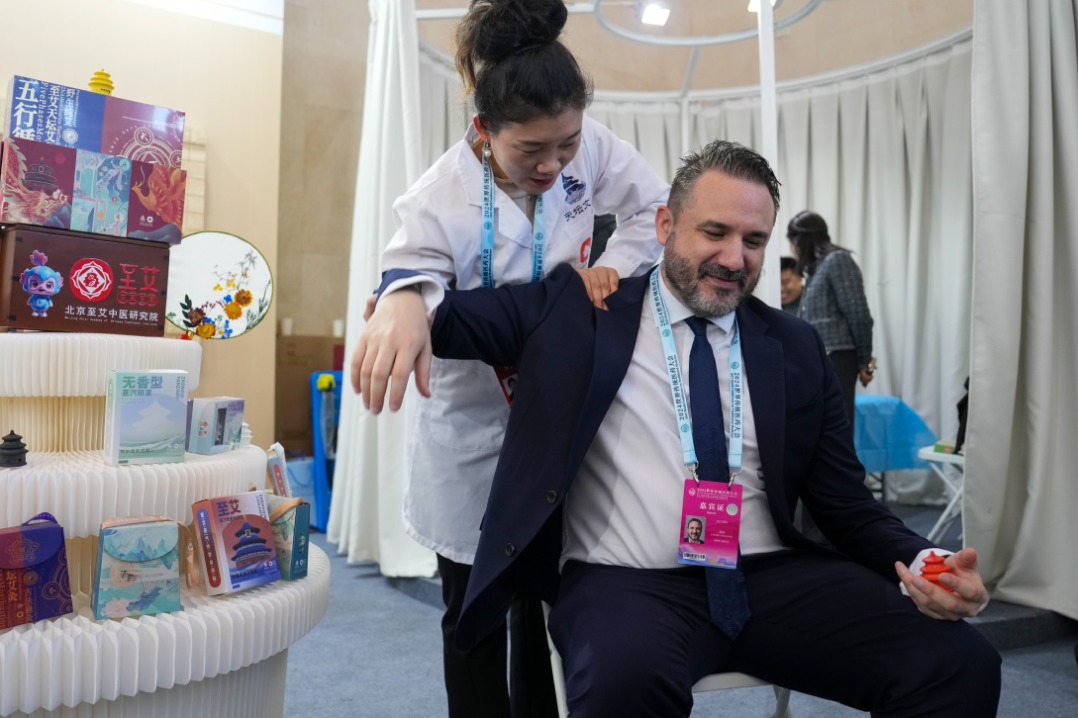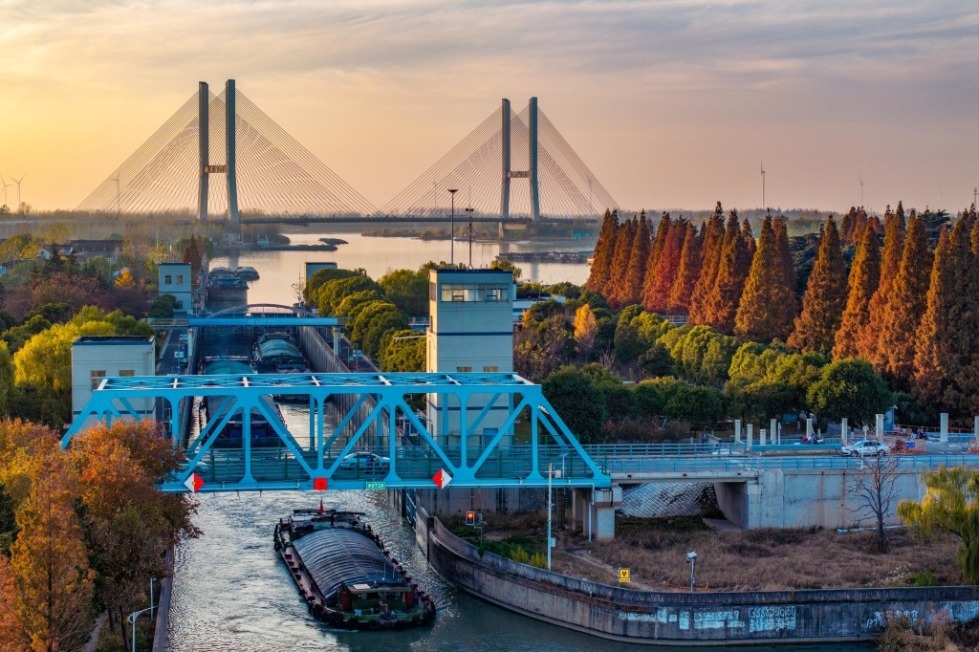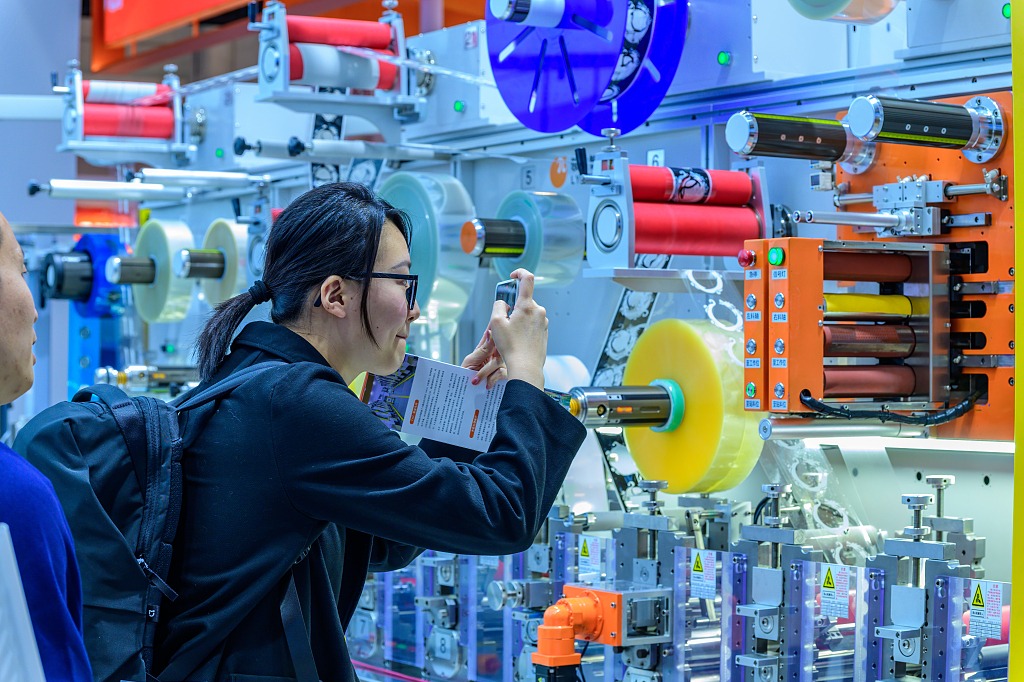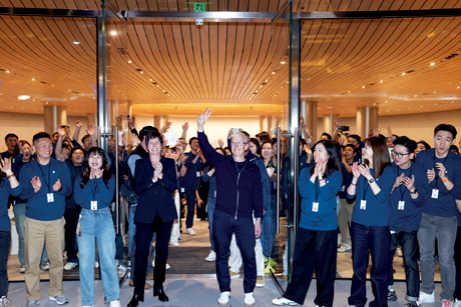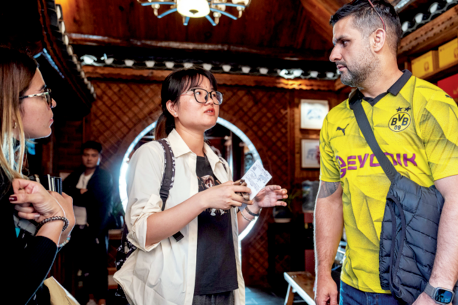Apple moves to work closely with Chinese partners
iPhone maker to strengthen long-term cooperation with suppliers in green and smart manufacturing sectors

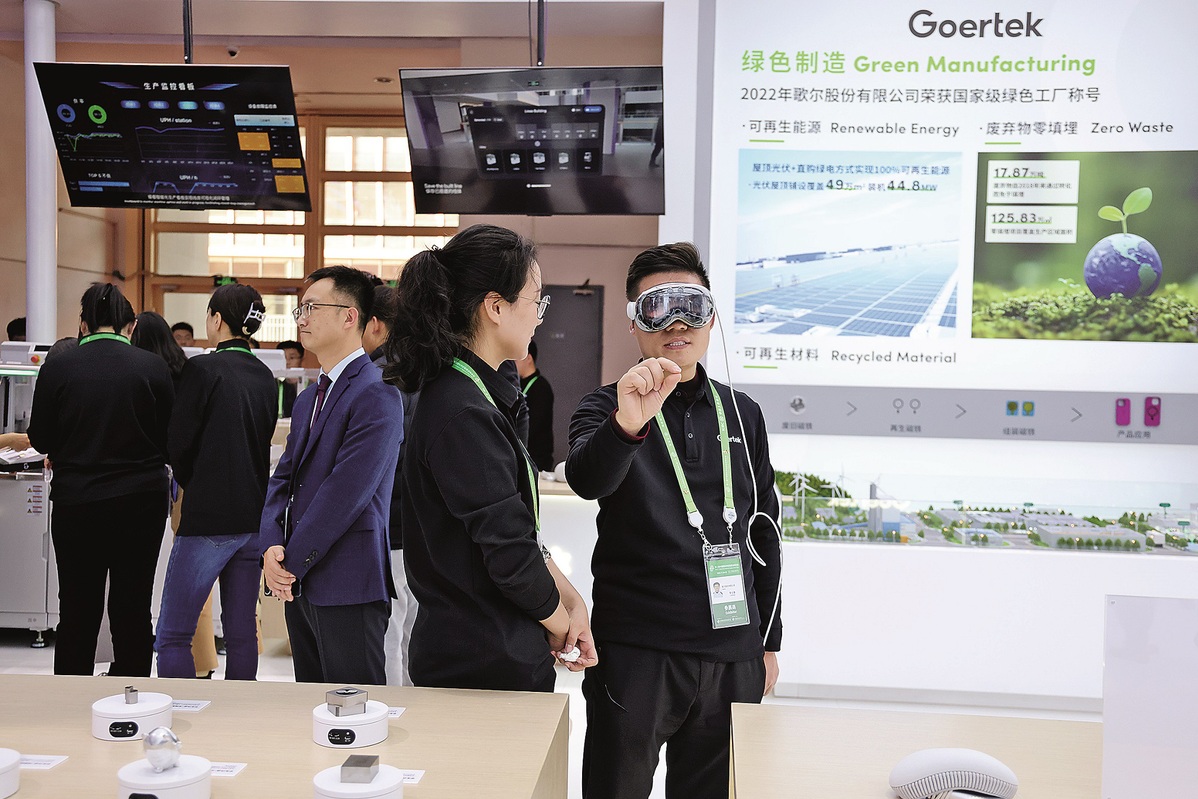
This was his third visit to China this year, sending a clear signal that Apple is continuing to strengthen supply chain cooperation with the world's second-largest economy.
During a visit to Shanghai in March, Cook reiterated the company's long-term commitment to the Chinese market when he opened Apple's biggest retail store on the Chinese mainland to date.
"There's no supply chain in the world that's more critical to us than China," Cook said.
He noted that to achieve win-win results, Apple will strengthen its long-term cooperation with its Chinese supply chain partners and work closely with them in the fields of green and smart manufacturing, in which Apple has invested $20 billion over the past five years.
Apple's supply chain is truly global, with products designed in California and components from all around the world, said Jeff Williams, Apple's chief operating officer, who has also visited China frequently in recent years.
Data show that in terms of the proportion of Apple parts supplied, the top countries last year included the United States, the Republic of Korea, China and Japan.
Out of Apple's 200 major suppliers worldwide, over 80 percent have opened factories in China, contributing to the manufacturing of a wide range of Apple products.
"We have seen tremendous improvements in the research and development and manufacturing capabilities of our Chinese suppliers over the years," said Iris Cui, Apple's vice-president for Asia procurement and operations. "We have been consistently impressed by their relentless pursuit of greater performance and efficiency."
According to staff with Crystal-optech, the company's tetraprism technology, which brings iPhone products to a 5x optical zoom range, has been applied to the latest iPhones.
"It is a technology that we have worked on for three years with Crystal-optech, and we have engaged in deep cooperation with our suppliers," said Isabel Mahe, Apple's vice-president and managing director of Greater China.
Since entering the Chinese mainland in 1993, Apple has continuously deepened its cooperation with Chinese enterprises.
Goertek, headquartered in Weifang, East China's Shandong province, has been cooperating with Apple in the field of acoustic sensors since 2010, and has participated in the production and manufacturing of dozens of Apple products.
"Through continuous R&D on automation technology in cooperation with Apple, breakthroughs have been made in our manufacturing process that used to be particularly challenging," said Jiang Bin, chairman of Goertek. He said that the company will continue to expand its business layout in Shandong and southern China and improve its rapid delivery capabilities.
After partnering with Apple 15 years ago, LY itech entered a period of rapid growth, transforming from a small firm specializing in die-cutting technology to a manufacturer that now supplies thousands of modules and components for major Apple products.
"Through the mutual cooperation, we have enhanced the value chain," said Zeng Fangqin, chairman and CEO of LY itech. "Amid headwinds, only by improving ourselves can we forge ahead," she added.
LY itech is planning to invest 2.2 billion yuan ($302 million) in the construction of a comprehensive industrial park in Dongguan, South China's Guangdong province. By the end of 2026, after the completion of the third phase of its plant construction, the annual industrial output value of the park is expected to reach 5 billion yuan.
In July, Williams visited intelligent manufacturing production lines and R&D centers of LY itech in Dongguan. In such factories, Apple engineers have long worked closely with its supplier teams from the product development stage to overcome technical difficulties.
"Apple's Chinese suppliers are pioneering some of the world's leading manufacturing technologies, and we are excited to support their growth," Mahe said.
China has been deeply involved in global industrial and supply chain cooperation, and global integration has become an inevitable trend of the times.
Many Chinese enterprises, including the four Apple suppliers at the CISCE, have established a strengthened manufacturing presence overseas. LY itech, for example, has opened factories in India, Vietnam, Brazil and other countries to provide parts for Apple.
In addition to Apple, China's complete industrial system is also attracting other industry giants to search for the best supply chain partners in the global allocation of resources.
John Denton, secretary-general of the International Chamber of Commerce, said, for all the talk of "the end of globalization", "decoupling", "high fences and small gardens", he believes the world needs a functioning and inclusive trading system for the benefit of all businesses and individuals.
Xinhua
















